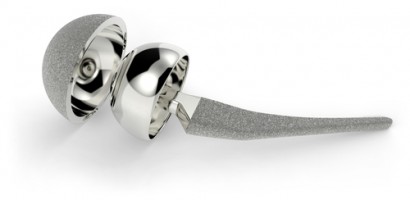5th Circuit blasts lawyer who sent thank-you checks to experts, yet told jurors they were unpaid

Hip replacement/Shutterstock.com.
A federal appeals court has overturned a $151 million award against a hip implant manufacturer because of “serious evidentiary errors” by the judge and “deceptions” by Mark Lanier, a high-profile Houston lawyer for the plaintiffs.
The New Orleans-based 5th U.S. Circuit Court of Appeals ruled last Wednesday in an opinion by Judge Jerry Smith. How Appealing links to the decision, while Reuters, Law360, the American Lawyer and Bloomberg have stories.
The court said Lanier had presented father-and-son orthopedic surgeons as unpaid experts, emphasizing their compelling pro bono testimony while contrasting the “bought testimony” of the defendants’ experts. Yet Lanier made a $10,000 charitable donation to the father’s favorite charity before trial, and sent checks totaling $65,000 to the surgeons after the trial along with thank-you notes.
The pretrial donation check and the post-trial payments “are individually troubling, collectively devastating,” Smith wrote. “Lanier’s failure to disclose the donation, and his repeated insistence that [one of the surgeons] had absolutely no pecuniary interest in testifying, were unequivocally deceptive.”
The five plaintiffs in the consolidated bellwether case had claimed that Pinnacle metal-on-metal hip implants made by DePuy Orthopaedics were defectively designed and marketed. Jurors awarded $502 million, but the award was reduced to $151 million under a damages cap in Texas. DePuy’s parent company, Johnson & Johnson, was also a defendant.
Smith said the trial judge had made errors by allowing “several pieces of inflammatory character evidence” against the defendants, including hearsay claims of race discrimination and testimony about payment of bribes to the “henchman” and “regime” of former Iraqi President Saddam Hussein.
Johnson & Johnson had entered into a deferred prosecution agreement for violations of the Foreign Corrupt Practices Act in connection with the payments, but they were made by affiliates that weren’t parties to the case, Smith said. Nor can prior bad acts be admitted to show that a party acted in accordance with its character. The error was compounded when Lanier’s closing argument invited jurors to infer guilt based on the prior bad acts, Smith said.
The plaintiffs had claimed evidence of racial discrimination was relevant because the defendants had described DePuy as an employee-friendly workplace. The plaintiffs introduced the racial bias evidence through a resignation letter read during cross-examination of DePuy’s president. The bias claim was “seriously distracting” and the defendants had no meaningful opportunity to rebut it, Smith said.
Lanier put a positive spin on the opinion in an email sent to the American Lawyer. He said the decision was “interesting” and noted that the court had rejected the defendants’ request for a judgment in their favor as a matter of law on most of the claims. “We think that the legal reasoning upholding the various actions against DePuy and J&J are strong and important. These will help all future cases,” Lanier said.
Lanier told Bloomberg he is eager for the retrial.
“I think we’ll get more money the next time around,” he said.



